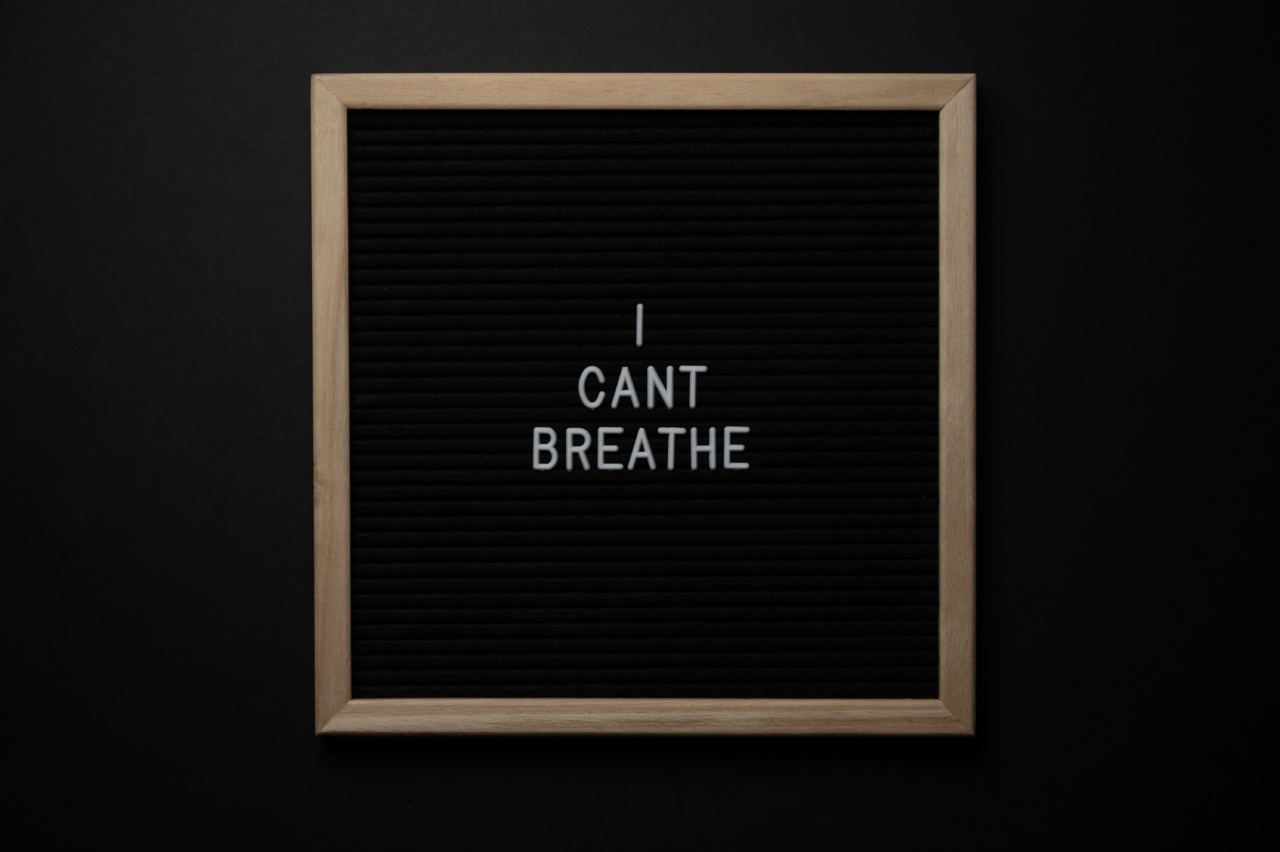Proper breathing is essential for maintaining good health and overall well-being. When breathing becomes abnormal or inefficient, it can have numerous negative effects on both physical and mental health.
In this article, we will explore the various ways in which abnormal breathing can impact our bodies and minds.
1. Reduced Oxygen Levels
Abnormal breathing patterns often result in reduced oxygen levels in the body. When we breathe shallowly or hold our breath, we take in less oxygen, leading to a condition known as hypoxia.
This deprives our cells, tissues, and organs of the oxygen they need to function optimally, resulting in fatigue, impaired cognitive abilities, and a weakened immune system.
2. Increased Stress and Anxiety
Abnormal breathing can directly contribute to increased stress and anxiety levels. When we feel stressed or anxious, our breathing tends to become fast and shallow, engaging the body’s fight-or-flight response.
This rapid breathing pattern sends signals to the brain that we are in danger, leading to heightened feelings of stress and anxiety.
3. Impaired Digestion
Proper breathing is closely linked to digestive health. When we breathe deeply and diaphragmatically, it promotes relaxation and activates the parasympathetic nervous system, which is responsible for initiating the body’s rest-and-digest response.
On the other hand, when breathing becomes shallow or irregular, it hinders digestion, leading to issues such as bloating, indigestion, and even malabsorption of nutrients.
4. Weakened Immune System
Abnormal breathing patterns can weaken the immune system, making us more susceptible to illnesses and infections.
The immune system relies on oxygen to function effectively, and reduced oxygen levels resulting from shallow or irregular breathing can compromise its performance. This leaves us less protected against harmful pathogens and can lead to a higher incidence of respiratory infections and various other health issues.
5. Poor Sleep Quality
Our breathing patterns significantly impact the quality of our sleep. When we breathe irregularly or experience conditions such as sleep apnea, it disrupts our sleep cycles and prevents us from getting the restorative rest we need.
Poor sleep quality can lead to daytime fatigue, difficulty concentrating, mood swings, and an increased risk of developing chronic health conditions such as hypertension and diabetes.
6. Muscle Tension and Pain
Abnormal breathing can contribute to muscle tension and pain throughout the body. When we breathe shallowly, it often involves using the muscles in our neck, chest, and shoulders instead of the diaphragm.
This can lead to chronic muscle tension, stiffness, and pain, particularly in these areas. Over time, this tension can contribute to postural issues, headaches, and even migraines.
7. Reduced Mental Clarity and Cognitive Performance
The brain requires a consistent supply of oxygen to function optimally. When our breathing patterns are inefficient or abnormal, it can negatively impact mental clarity, focus, and cognitive performance.
Reduced oxygen levels resulting from abnormal breathing can lead to brain fog, difficulties with memory and concentration, and a general feeling of mental sluggishness.
8. Increased Heart Rate and Blood Pressure
Abnormal breathing can also lead to an increase in heart rate and blood pressure. When we breathe rapidly, it stimulates the sympathetic nervous system, which initiates the body’s stress response.
This can cause a temporary rise in heart rate and blood pressure, putting additional strain on the cardiovascular system. Over time, this can increase the risk of developing cardiovascular diseases and conditions.
9. Emotional Imbalances
Abnormal breathing patterns can disrupt emotional equilibrium and contribute to mood swings and emotional imbalances. Proper breathing promotes a sense of calmness and relaxation by activating the body’s relaxation response.
When our breathing becomes irregular or fast, it can trigger the release of stress hormones, leading to mood disturbances, irritability, and even depression.
10. Decreased Lung Function
Consistently engaging in abnormal breathing patterns can lead to decreased lung function over time. When we breathe shallowly, we do not fully utilize our lung capacity, causing the lungs to become stiff and less efficient.
This reduction in lung function can contribute to respiratory issues, such as asthma, shortness of breath, and reduced exercise tolerance.































